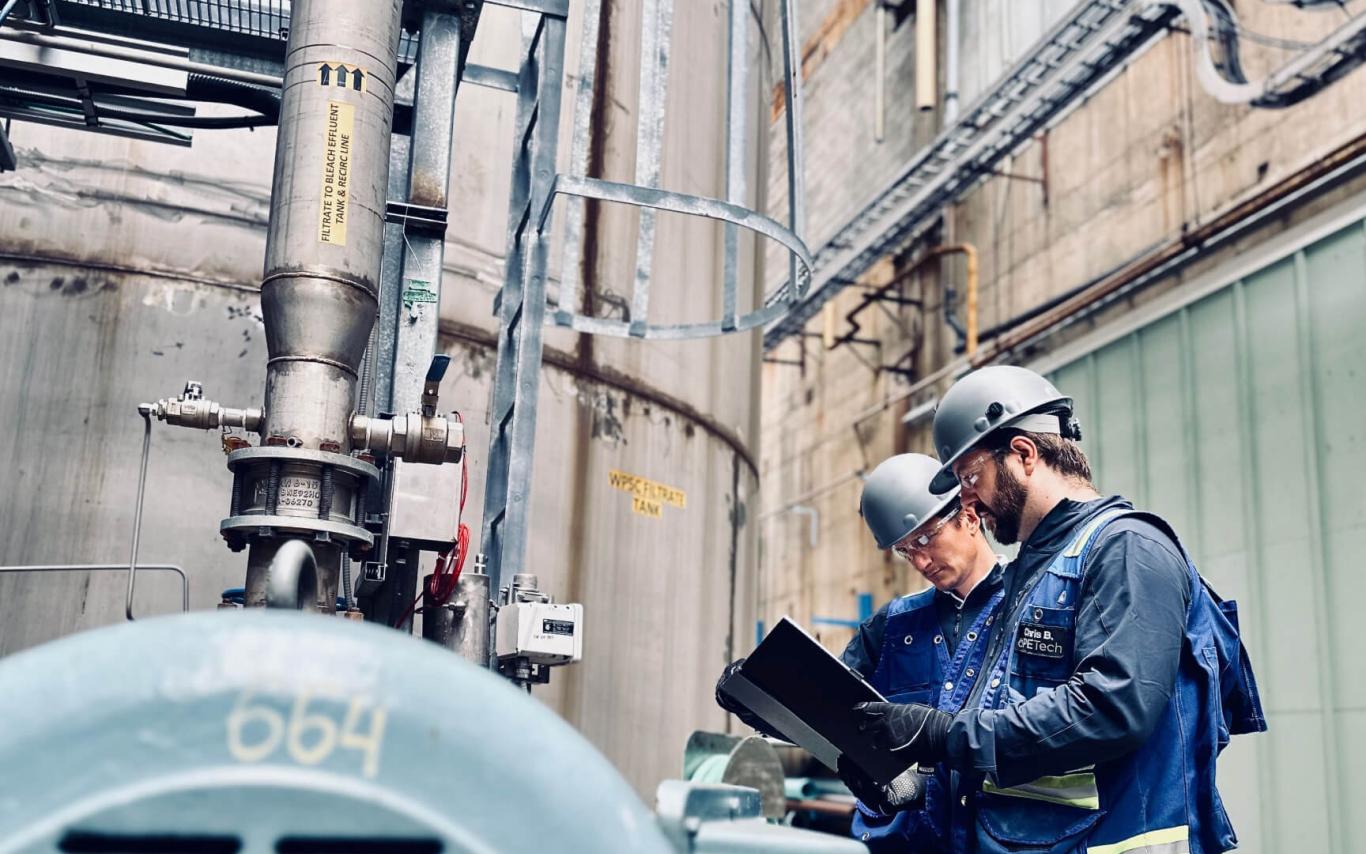PE Tech Feasibility Report Highlights Impressive Benefits of Replacing Kiln Natural Gas Burners with Biomass Fines Burner System for BC Pulp Mill
Biofuels represent a progressive low-carbon alternative for industries aiming to lessen their dependence on fossil fuels and improve energy efficiency. Various forms of renewable energy-rich biomass are a natural product of the manufacturing process in Northern Bleached Softwood Kraft (NBSK) pulp mills, so considering how these might be best utilized to decrease operating costs, greenhouse gas emissions, reliance on external energy sources, and wasted by-products is a prudent strategy for long-term sustainability.
PE Tech was enlisted by an NBSK pulp and paper mill on the west coast to perform a feasibility study regarding the replacement of kiln natural gas burners with biomass burners fuelled by processed wood fines from the Chip Thickness Screening (CTS). To use biomass as a fuel source for kiln firing, it must be processed into a dry material that can be ground down until consistently fine; the wood product can then be transferred into burners to be used as fuel to create flame, which is operated in the same way as a natural gas burner. Consequently, it was found that no modifications to the current kilns is required beyond replacing the burner unit. The expected end-product of this technology is a high energy fuel source that produces low emissions and waste.
The study identified current operational costs and carbon emissions to allow comparison of those findings with a process model of the biomass burner and processing equipment, developed by PE Tech via information provided by pulp mill staff and the equipment manufacturer, Valmet. Careful analysis of the variance provided key information in respect to potential savings in operating costs and fossil fuel emissions, with promising results.
It was discovered that the mill’s CTS produces just enough wood, on average, to supply reliable energy for the mill’s lime kiln needs. The data from this study forecasts that the mill will save 29,590 metric tons of carbon dioxide a year, with a complete return on investment within a reasonable 6.2 years. despite requiring a significant amount of energy to heat the dryer, new heat exchangers installed on the boiler flue stacks could recover almost all the required energy, with the remainder provided by steam. The resulting annual savings would be enough to make a substantial return on investment through an impressive reduction in overhead expense paired with lower emissions.
